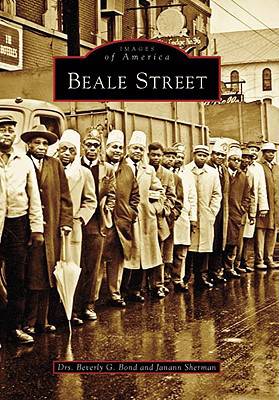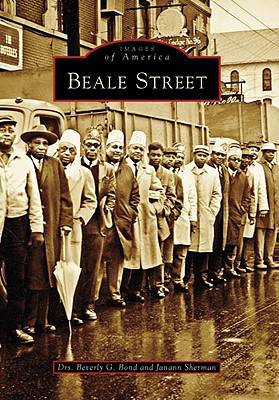
- Afhalen na 1 uur in een winkel met voorraad
- Gratis thuislevering in België vanaf € 30
- Ruim aanbod met 7 miljoen producten
- Afhalen na 1 uur in een winkel met voorraad
- Gratis thuislevering in België vanaf € 30
- Ruim aanbod met 7 miljoen producten
Zoeken
Omschrijving
Once celebrated as the Main Street of Negro America, Beale Street has a long and vibrant history. In the early 20th century, the 15-block neighborhood supported a collection of hotels, pool halls, saloons, banks, barber shops, pharmacies, dry goods stores, theaters, gambling dens, jewelers, fraternal clubs, churches, entertainment agencies, beauty salons, pawn shops, blues halls, and juke joints. Above the street-level storefronts were offices of African American business and professional men: dentists, doctors, undertakers, photographers, teachers, realtors, and insurance brokers. By mid-century, following the social strife and urban renewal projects of the 1960s and 1970s, little remained of the original neighborhood. Those buildings spared by the bulldozers were boarded up and falling down. In the nick of time, in the 1980s, the city realized the area's potential as a tourist attraction. New bars, restaurants, and entertainment venues opened along the remaining three-block strip, providing a mecca for those seeking to recapture the magic of Beale Street.
Specificaties
Betrokkenen
- Auteur(s):
- Uitgeverij:
Inhoud
- Aantal bladzijden:
- 128
- Taal:
- Engels
- Reeks:
Eigenschappen
- Productcode (EAN):
- 9780738543635
- Verschijningsdatum:
- 8/11/2006
- Uitvoering:
- Paperback
- Formaat:
- Trade paperback (VS)
- Afmetingen:
- 167 mm x 234 mm
- Gewicht:
- 326 g

Alleen bij Standaard Boekhandel
+ 69 punten op je klantenkaart van Standaard Boekhandel
Beoordelingen
We publiceren alleen reviews die voldoen aan de voorwaarden voor reviews. Bekijk onze voorwaarden voor reviews.








